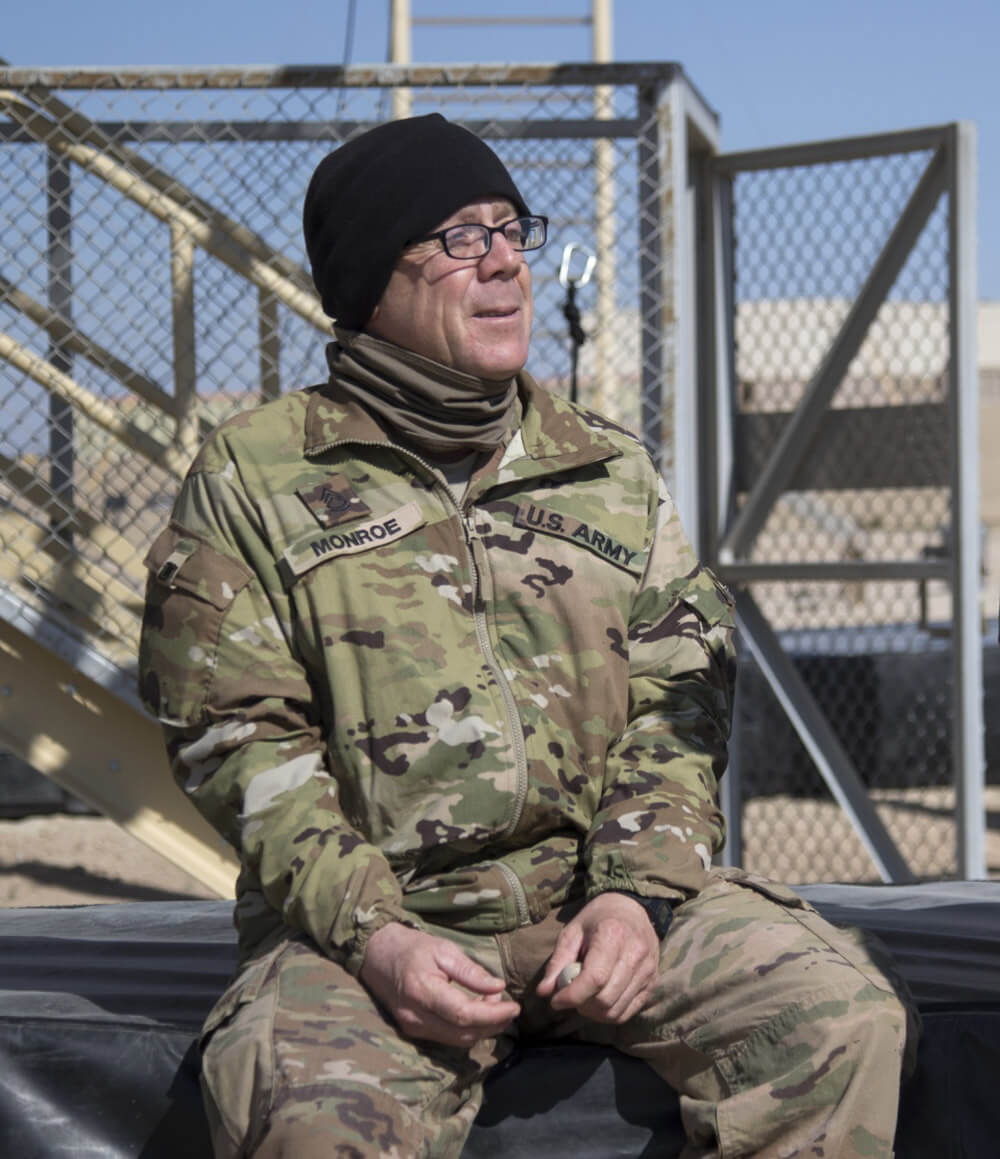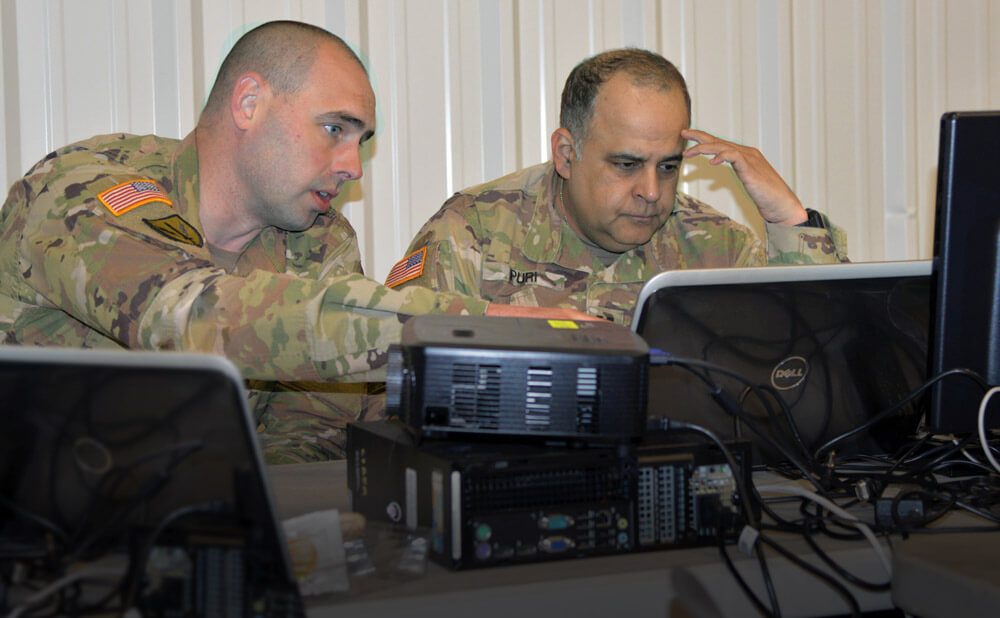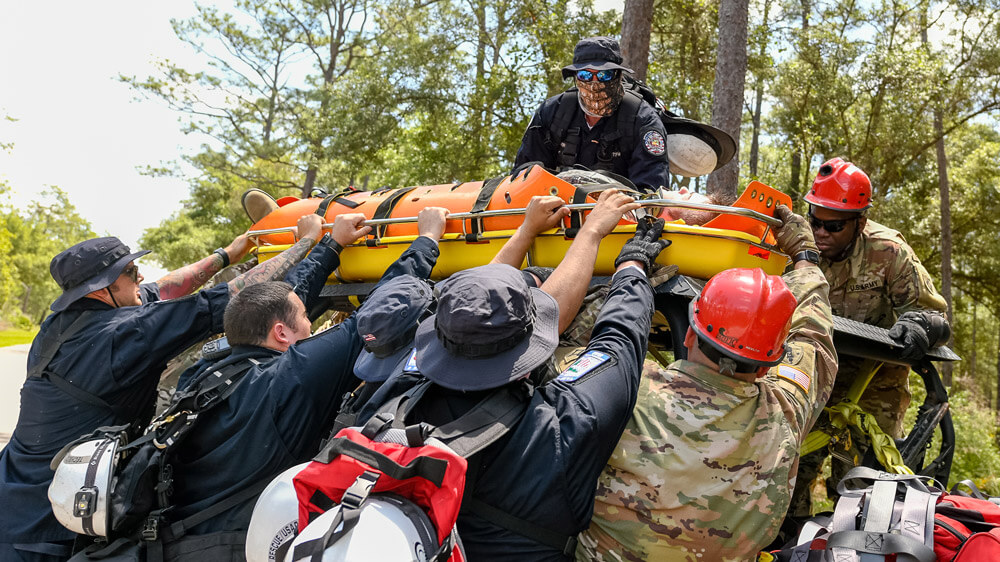Proper nutrition and a balanced diet are vital components to Soldiers completing a strenuous course like the Air Assault School at Camp Buehring, Kuwait.
SFC Richard Monroe, a combat medic assigned to the 198th Armored Regiment, Mississippi Army National Guard, stresses to Soldiers the importance of consuming plenty of salty foods before physically strenuous events.
SFC Monroe’s own experiences at Camp Shelby, Mississippi, which is located in a hot and humid climate, prepared him for his current mobilization.
“I’ve seen Soldiers go into [stages] of heat stroke at Camp Shelby,” said SFC Monroe. “It’s dangerous.”
In February of this year, SFC Monroe was assigned to provide medical coverage to Soldiers enrolled in Air Assault School at Camp Buehring, Kuwait. On day two of classes, the Soldiers participated in a six-mile ruck march. SFC Monroe said a Soldier, who was healthy and muscular, came in from the march blacking out.
“His eyes were rolling to the back of his head,” said SFC Monroe. “He was having muscle spasms in his legs.”
The medic team first treated the Soldier and ensured he was no longer in danger. Then SFC Monroe, who noted that one of his strong suits is teaching Soldiers about proper nutrition, offered the Soldier further advice to eat more salt.
“A lot of people will tell the Soldiers to drink water, but [after a certain] point, you are drinking [so much] water that you are flushing salt,” SFC Monroe explained.
SFC Monroe recommends eating a healthy breakfast at the start of the day. He said if Soldiers only have access to the dining facility, then they should eat peanut butter to help sustain them during physically demanding work throughout the day.
“Peanut butter has salts and sugars in it,” he noted. “It’s a superfood.”
SFC Monroe offered further advice to Soldiers going on early morning events. He recommends eating foods on the go, for example, a pop tart.
“Look, you have to eat salts,” said SFC Monroe. “Your heart and all your muscles run by salts, sodium and potassium. If you deplete them, your heart is going to stop.”
SFC Monroe is the noncommissioned officer in charge of the medics assigned to the Air Assault school. He explained how the school and its events are staffed. He said there are four medics assigned to the school, which started with 240 students. Each event is staffed according to physical layout and the likelihood of injuries.
“Two medics can’t cover all the way to the other side of the base,” he said, referring to the school’s six-mile ruck march.
The standard operating procedure requires two medics on hand and four medics for major events. There are seven medics assigned to this school, allowing students to take solace in knowing there are plenty of medics present.
“I’ve seen one injury in each event,” noted SFC Monroe. “The time of the year is nice, but you don’t know how badly [the warm weather can affect unprepared Soldiers].”
SFC Monroe said he plans to stay committed to leading his medics and offering nutrition advice to Soldiers as often as he can.
BY SGT Christopher Lindborg, Mississippi NATIONAL GUARD



